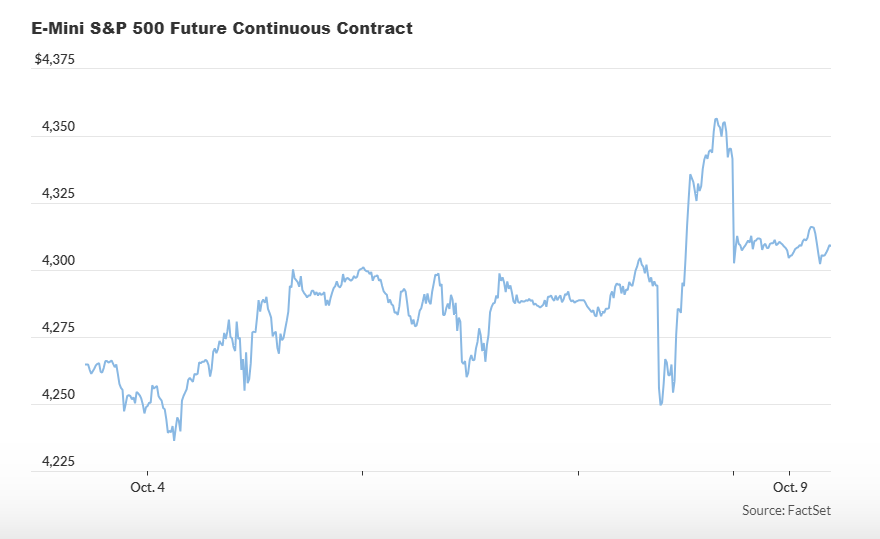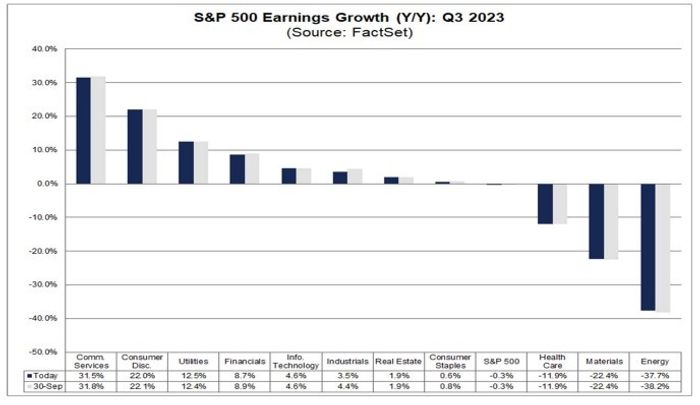U.S. stock futures faced a decline early on Monday due to a surge in violence in the Middle East, causing concern among investors.
Here’s how stock-index futures were trading:
- S&P 500 futures (ES00, -0.63%) dropped by 20 points or 0.5% to reach 4,322.
- Dow Jones Industrial Average futures (YM00, -0.51%) lost 128 points or 0.7% to settle at 33,472.
- Nasdaq 100 futures (NQ00, -0.83%) eased by 93 points or 0.6%, bringing it to 15,019.
On the previous Friday, the Dow Jones Industrial Average (DJIA) rose by 288 points, or 0.87%, reaching 33,408. Similarly, the S&P 500 (SPX) increased by 50 points, or 1.18%, to 4,309, and the Nasdaq Composite (COMP) gained 212 points, or 1.6%, reaching 13,431.
What’s Driving the Markets
Global markets began the week with a risk-off sentiment as Hamas’s attack on Israel raised concerns about a broader conflict.
Richard Hunter, head of markets at Interactive Investor, noted, “Such geopolitical tension is traditionally and unsurprisingly negative on sentiment, with investors likely to be unsettled by the prospect of further uncertainty.”

The price of Brent crude (BRN00, 3.41%), the global energy benchmark, surged nearly 4% amid concerns about potential disruptions in oil supplies from the Middle East.
Jim Reid, a strategist at Deutsche Bank, pointed out, “Geopolitical risk doesn’t tend to linger long in markets but there are many second-order impacts that could come through in the weeks, months, and years ahead from this weekend’s developments.”
While traders remained focused on geopolitical developments, the week ahead was expected to shift the focus back to monetary and corporate issues. Notably, the U.S. producer and consumer price data for September would be published, providing further insight into the Federal Reserve’s potential actions.
Additionally, the third-quarter company earnings season was set to begin, featuring big banks such as JPMorgan Chase (JPM), Citigroup (C), and Wells Fargo (WFC) presenting their results. Analysts had become less confident about corporate profitability in recent weeks, with S&P 500 earnings expected to decline by 0.3% for the year to Q3 2023.

Although there were no U.S. economic updates scheduled for release on Monday, there would be some statements from Federal Reserve officials, including Dallas Fed President Lorie Logan and Fed Governor Philip Jefferson. Tom Lee, head of research at Fundstrat, suggested that the ongoing conflict in the Middle East could potentially impact the U.S. economy through a drop in consumer confidence or global economic disruptions, which might influence the Federal Reserve’s policy decisions.




